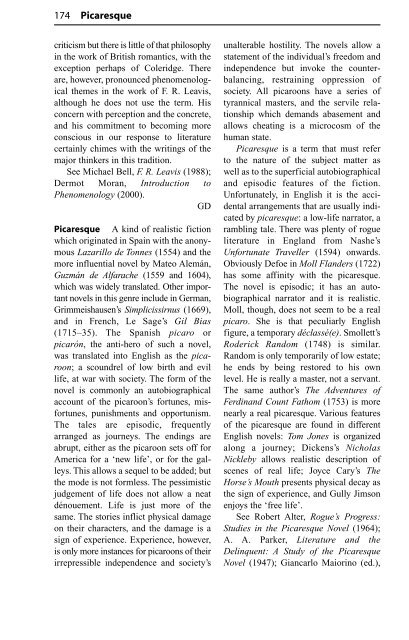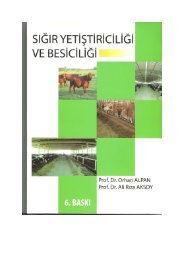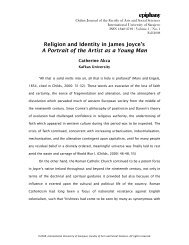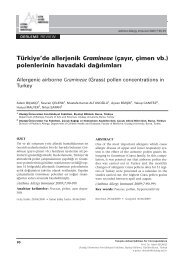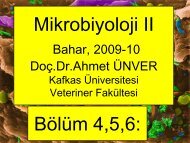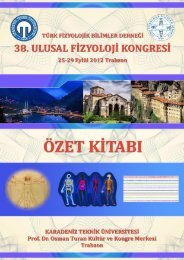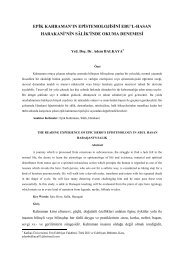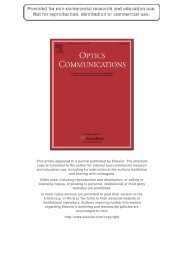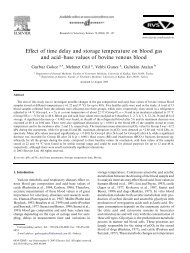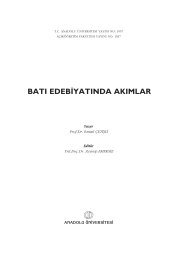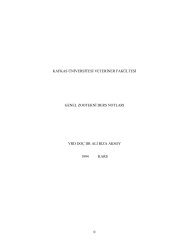The Routledge Dictionary of Literary Terms
The Routledge Dictionary of Literary Terms
The Routledge Dictionary of Literary Terms
You also want an ePaper? Increase the reach of your titles
YUMPU automatically turns print PDFs into web optimized ePapers that Google loves.
174 Picaresque<br />
criticism but there is little <strong>of</strong> that philosophy<br />
in the work <strong>of</strong> British romantics, with the<br />
exception perhaps <strong>of</strong> Coleridge. <strong>The</strong>re<br />
are, however, pronounced phenomenological<br />
themes in the work <strong>of</strong> F. R. Leavis,<br />
although he does not use the term. His<br />
concern with perception and the concrete,<br />
and his commitment to becoming more<br />
conscious in our response to literature<br />
certainly chimes with the writings <strong>of</strong> the<br />
major thinkers in this tradition.<br />
See Michael Bell, F. R. Leavis (1988);<br />
Dermot Moran, Introduction to<br />
Phenomenology (2000).<br />
GD<br />
Picaresque A kind <strong>of</strong> realistic fiction<br />
which originated in Spain with the anonymous<br />
Lazarillo de Tonnes (1554) and the<br />
more influential novel by Mateo Alemán,<br />
Guzmán de Alfarache (1559 and 1604),<br />
which was widely translated. Other important<br />
novels in this genre include in German,<br />
Grimmeishausen’s Simplicissirnus (1669),<br />
and in French, Le Sage’s Gil Bias<br />
(1715–35). <strong>The</strong> Spanish picaro or<br />
picarón, the anti-hero <strong>of</strong> such a novel,<br />
was translated into English as the picaroon;<br />
a scoundrel <strong>of</strong> low birth and evil<br />
life, at war with society. <strong>The</strong> form <strong>of</strong> the<br />
novel is commonly an autobiographical<br />
account <strong>of</strong> the picaroon’s fortunes, misfortunes,<br />
punishments and opportunism.<br />
<strong>The</strong> tales are episodic, frequently<br />
arranged as journeys. <strong>The</strong> endings are<br />
abrupt, either as the picaroon sets <strong>of</strong>f for<br />
America for a ‘new life’, or for the galleys.<br />
This allows a sequel to be added; but<br />
the mode is not formless. <strong>The</strong> pessimistic<br />
judgement <strong>of</strong> life does not allow a neat<br />
dénouement. Life is just more <strong>of</strong> the<br />
same. <strong>The</strong> stories inflict physical damage<br />
on their characters, and the damage is a<br />
sign <strong>of</strong> experience. Experience, however,<br />
is only more instances for picaroons <strong>of</strong> their<br />
irrepressible independence and society’s<br />
unalterable hostility. <strong>The</strong> novels allow a<br />
statement <strong>of</strong> the individual’s freedom and<br />
independence but invoke the counterbalancing,<br />
restraining oppression <strong>of</strong><br />
society. All picaroons have a series <strong>of</strong><br />
tyrannical masters, and the servile relationship<br />
which demands abasement and<br />
allows cheating is a microcosm <strong>of</strong> the<br />
human state.<br />
Picaresque is a term that must refer<br />
to the nature <strong>of</strong> the subject matter as<br />
well as to the superficial autobiographical<br />
and episodic features <strong>of</strong> the fiction.<br />
Unfortunately, in English it is the accidental<br />
arrangements that are usually indicated<br />
by picaresque: a low-life narrator, a<br />
rambling tale. <strong>The</strong>re was plenty <strong>of</strong> rogue<br />
literature in England from Nashe’s<br />
Unfortunate Traveller (1594) onwards.<br />
Obviously Defoe in Moll Flanders (1722)<br />
has some affinity with the picaresque.<br />
<strong>The</strong> novel is episodic; it has an autobiographical<br />
narrator and it is realistic.<br />
Moll, though, does not seem to be a real<br />
picaro. She is that peculiarly English<br />
figure, a temporary déclassé(e). Smollett’s<br />
Roderick Random (1748) is similar.<br />
Random is only temporarily <strong>of</strong> low estate;<br />
he ends by being restored to his own<br />
level. He is really a master, not a servant.<br />
<strong>The</strong> same author’s <strong>The</strong> Adventures <strong>of</strong><br />
Ferdinand Count Fathom (1753) is more<br />
nearly a real picaresque. Various features<br />
<strong>of</strong> the picaresque are found in different<br />
English novels: Tom Jones is organized<br />
along a journey; Dickens’s Nicholas<br />
Nickleby allows realistic description <strong>of</strong><br />
scenes <strong>of</strong> real life; Joyce Cary’s <strong>The</strong><br />
Horse’s Mouth presents physical decay as<br />
the sign <strong>of</strong> experience, and Gully Jimson<br />
enjoys the ‘free life’.<br />
See Robert Alter, Rogue’s Progress:<br />
Studies in the Picaresque Novel (1964);<br />
A. A. Parker, Literature and the<br />
Delinquent: A Study <strong>of</strong> the Picaresque<br />
Novel (1947); Giancarlo Maiorino (ed.),


